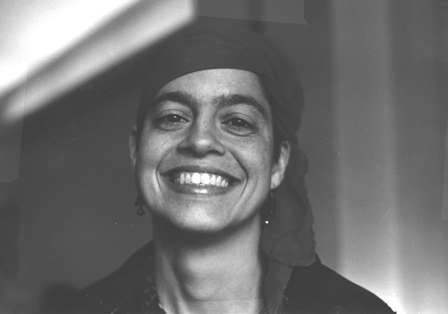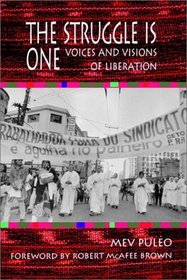“In Portuguese, a luta, or in Spanish, la lucha, is the struggle for survival, the struggle to bring about the Reign of God: a piece of bread, a plot of land, a just wage, a day-care center. These are not given from above but won from below.”
–Mev Puleo, Introduction, The Struggle Is One: Voices and Visions of Liberation
The week of what would be Mev’s 50th birthday, I invite people to gather to reflect on her book of love and wisdom, The Struggle is One, a project whose seed was planted in a 1987 trip to Brazil, and was published by SUNY Press in 1994, the year she was diagnosed with a brain tumor. Her last months in 1995 were spent adapting the book to a 28-minute video.
Sunday 20 January 2013
Potluck dinner at 6:00 p.m.
Discussion begins at 6:45 p.m.
4514 Chouteau Avenue (63110)
from Mev’s interviews with the Brazilians of the liberation church…
Salome Costa: “When no one has food, when no one has a house, when no one can go to school — then the reign of God isn’t happening!”
Maria Goreth Barradas: “From the moment you really feel it in your own skin — when you pinch yourself, it hurts — then you’ll remember that if you pinch someone else, they also hurt. This resolves the problem. It comes down to feeling what others feel.”
Toinha Lima Barros: “People were saying that it was a sin to wear make-up and short skirts, yet so many people around us were illiterate, dying without medical care, dying of hunger! No one said this was a sin!”
Lori Altman: “We also came to learn that to be in solidarity with the poor we didn’t have to give up everything or stop being who we were. I’ll always be middle class, even if I lower my salary. We’re middle class by the very way we understand society, our level of education, our access to persons and power. We can’t deny our own history!”
Frei Betto: “This option for the poor is the bread and butter one chooses for one’s life. That is, my life project either goes in the direction of strengthening justice for the poor or in the direction of strengthening the oppressive system for the rich minority.”
Silvia Regina De Lima Silva: “We were taught ‘God the Father’. But for us women, our experience of God was much more of a Mother — in God’s closeness, tenderness, friendship. We experience God as Trinity, as Community who unites all kinds of possibilities and diversities! So we speak of a Black God, Mother God, Worker God. This de-mystifies what’s been passed on to us! In our process of organization and liberation of our people, it’s important to meet a God who is more like us.”
Carlos Mesters: “One time a poor person said to me, ‘When I moved to the city, I have the greatest sorrow when I pass a poor person begging, and I don’t have anything to give him! I go and hide in my house so he won’t see my face. The worst thing in the world is to have nothing to share with a person poorer than myself.’”
Clodovis Boff: “I also do yoga and Tai Chi. I learned to drink tea in Japanese style, calmly, with serenity, without speaking about serious things. This is all so essential to recuperate our humanity — to liberate what is most fine, most noble, most profound, most human within us. Life isn’t only struggle. It’s struggle and play! Work and dance — like the Greeks and Spartans who prepared for war with ceremonies of music and dance! Five years ago we thought these things were bourgeois. Today we’ve rediscovered that they are good”
Ruben Alves: “Yes, Raquel’s birth was a purifying experience in that it empowered me to say, “this is important,” and the rest becomes blurred. Her birth re-integrated things in my life. For example, when she was born I suddenly discovered that — absolutely — I would not spend another minute of my life writing academically. I broke with the academic style because I decided that life is very short, very mysterious, and I didn’t have the time to waste with academics. I would only say things in the most honest manner. If people like it, fine. If not, I can’t help that. Today I couldn’t write academically even if I wanted to!”
Ivone Gebara: “Truly I’ve learned more theology in poor neighborhoods than in classrooms. At times I wonder if the questions of traditional theology have any meaning for the poor. And ‘the poor’ here means eighty percent of the population!”
Pedro Casaldáliga: “When you have everything, you value nothing. I’ve seen people with ten brands of cheese in their refrigerators. Their biggest problem is choosing what kind of cheese they want! How many times I traveled by horseback in the backlands and arrived at the house of a peasant — and the only thing they could give me was a little cup of water! But, that cup of water is so valuable! So welcomed! ”

